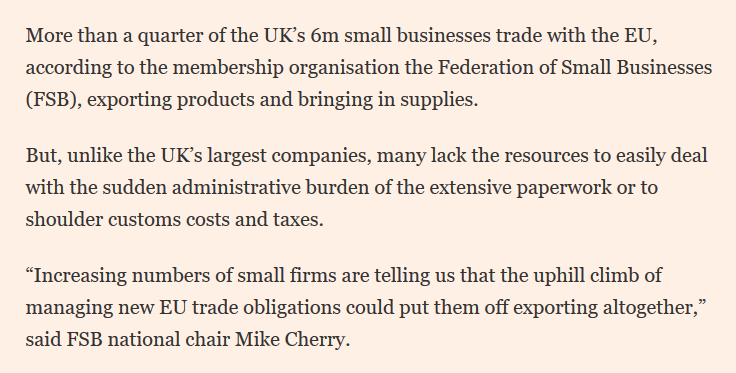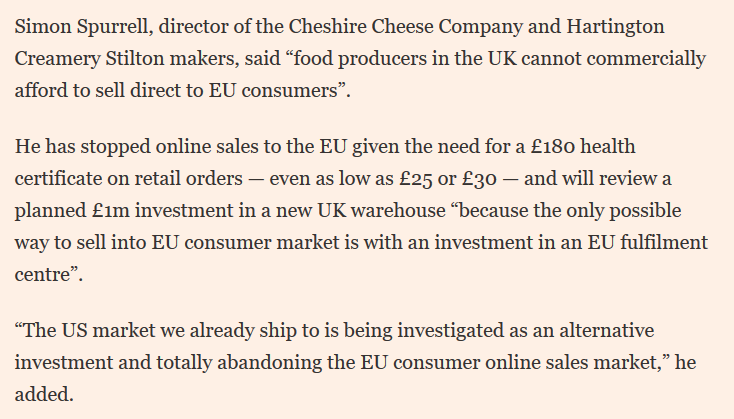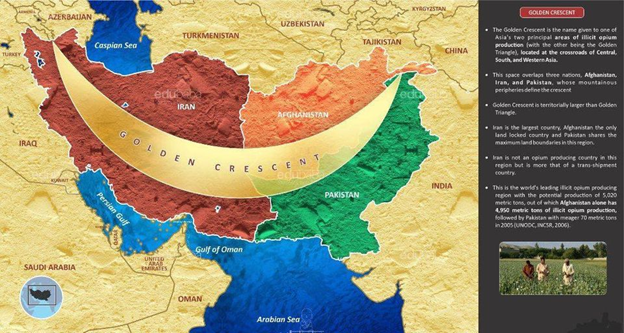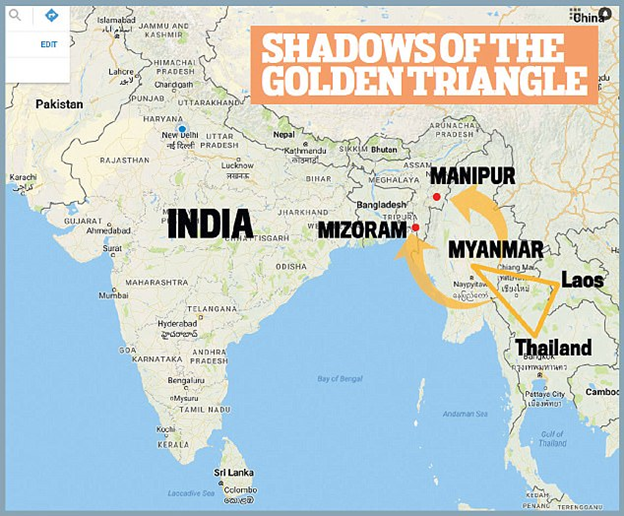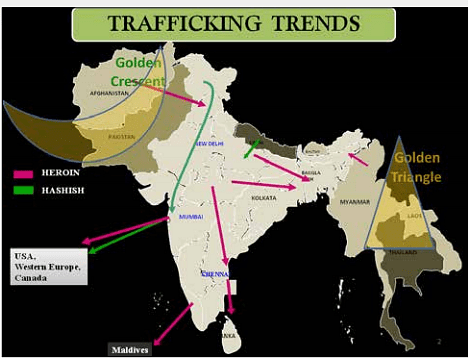For the lawyers. Night. pic.twitter.com/5XvFMhcaeE
— Sam Lowe (@SamuelMarcLowe) December 25, 2020
Quick intro to more analysis later - since Freeports are mentioned in this article worth making the point that it seems to me under the UK-EU deal that if the UK provides subsidies for them, or relaxes labour or environmental rules in them, the EU can take retaliatory action.
Michael Gove: "Outside the EU, with a good trade deal in place, we can tackle the injustices and inequalities that have held Britain back."
— Jennifer Rankin (@JenniferMerode) December 26, 2020
The UK did not need to leave the EU to tackle injustices and inequalities at home. Not a new point, but true.https://t.co/fE4glUAylc
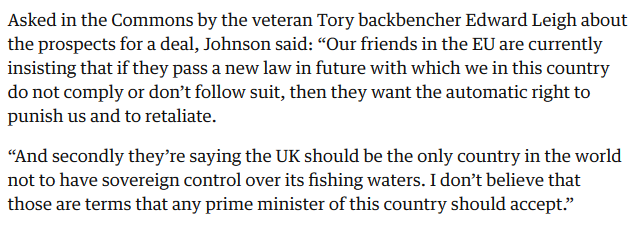
As a lay person is it fair to say that the \u201cthreat\u201d to break international law in Ireland was possibly a strategic blunder that has now determined the future trajectory of the UK for the next 20 years? I can imagine most countries will study what\u2019s baked into this and replicate?
— Meister 1 (@blueelmacho) December 26, 2020
If you're curious how other countries are presenting the UK-EU deal, this is the verdict from a French left-wing paper:
— Pascal \U0001f1ea\U0001f1fa\U0001f1ec\U0001f1e7 (@PascalLTH) December 25, 2020
It is "packed with regulatory brakes stopping London from undertaking social, ecological or fiscal dumping" https://t.co/aPCtyfPKmy
EU-UK TCA.
— Rem Korteweg (@remkorteweg) December 26, 2020
Happy Boxing Day!
https://t.co/39fVCycPUI
Government argue fact that the tribunals are not connected to ECJ, shows the win here on sovereignty ... only one reference in entire text to ECJ here on governance of UK access to EU programmes (eg Horizon), where ECJ arbitration judgements and orders will be enforceable in UK pic.twitter.com/WEIS8WYO01
— Faisal Islam (@faisalislam) December 26, 2020
May I be the first to say, \u201clol, that looks like a quota\u201d.
— Sam Lowe (@SamuelMarcLowe) December 26, 2020
(I\u2019m just joking, these aren\u2019t normal quotas. They are special rules of origin quotas: a certain tonnage of the product gets to use more accommodating rules of origin.) pic.twitter.com/BE2CyQIggS
Rather than negotiations, most of this year has just been choreography.
— Sam Lowe (@SamuelMarcLowe) December 25, 2020
Merry Christmas! \U0001f384
(Incidentally I'm reading as well, but copying the best points I see from others). https://t.co/BsJQU3sJWP
Last point from industry trade expert...
— Faisal Islam (@faisalislam) December 26, 2020
Export businesses will not lobby for lower standards/ aggressive regulatory competition in this environment, indeed EU-facing ones will lobby against such moves if it risks retaliatory tariffs. Thoughts? pic.twitter.com/1fluBNsy0e
At the very least negotiators should have been allowed a lot more freedom to prepare landing zone scenarios on fish months ago.
— Dmitry Grozoubinski (@DmitryOpines) December 26, 2020
Boris Johnson losing in negotiations with the EU is probably a victory for UK strategic interests
— Alexander Clarkson (@APHClarkson) December 26, 2020
The Deal has set up a framework for pragmatic UK reconvergence with the EU short of full integration in the EU system. Future governments can tack various bits of reconvergence to deal with specific UK voter complaints or business sector problems relatively smoothly. NAFTA model
— Alexander Clarkson (@APHClarkson) December 26, 2020
Lastly food industry, already smarting from events, say lack of equivalence for GB agrifood/ SPS problematic as it stands they say \u201cNew Zealand has a closer relationship on SPS with the EU than GB from Jan 1\u201d with an agreement that limits checks (1%) & simplifies paperwork
— Faisal Islam (@faisalislam) December 26, 2020
More from David Henig
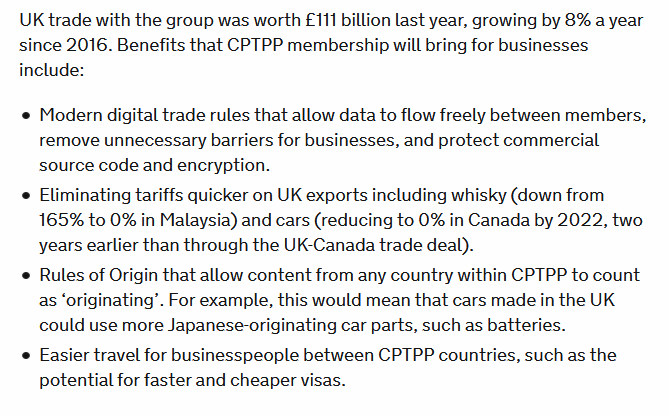
Tomorrow we will formally apply to join #CPTPP \U0001f1ec\U0001f1e7
— Liz Truss (@trussliz) January 31, 2021
Membership will help drive an export- led, jobs-led recovery across \U0001f1ec\U0001f1e7 bringing more opportunities to trade with fast growing Pacific nations. \U0001f30e
Read more here\U0001f447https://t.co/5sQhgW4vCM
Here's my more realistic take on CPTPP. Economic gains limited, but politically in terms of trade this makes some sort of sense, these are likely allies. DIT doesn't say this, presumably the idea of Australia or Canada as our equal upsets them.
Gather UK application to join CPTPP is finally about to be announced, not that it was exactly a secret. Economic value limited given distance and existing UK deals, not a particularly strong or modern agreement in areas of UK strength like services, but...
— David Henig (@DavidHenigUK) January 30, 2021
As previously noted agriculture interests in Australia and New Zealand expect us to reach generous agreements in WTO talks and bilaterals before acceding to CPTPP. So this isn't a definite. Oh and Australia wants to know if we'll allow hormone treated beef
Ultimately trade deals are political, and the UK really wants CPTPP as part of the pivot to indo-pacific, and some adherents also hope it forces us to change food laws without having to do it in a US deal (isn't certain if this is the case or not).
If we can accede to CPTPP without having to make changes to domestic laws it is fine. Just shouldn't be our priority, as it does little for services, is geographically remote, and hardly cutting edge on issues like climate change or animal welfare.

